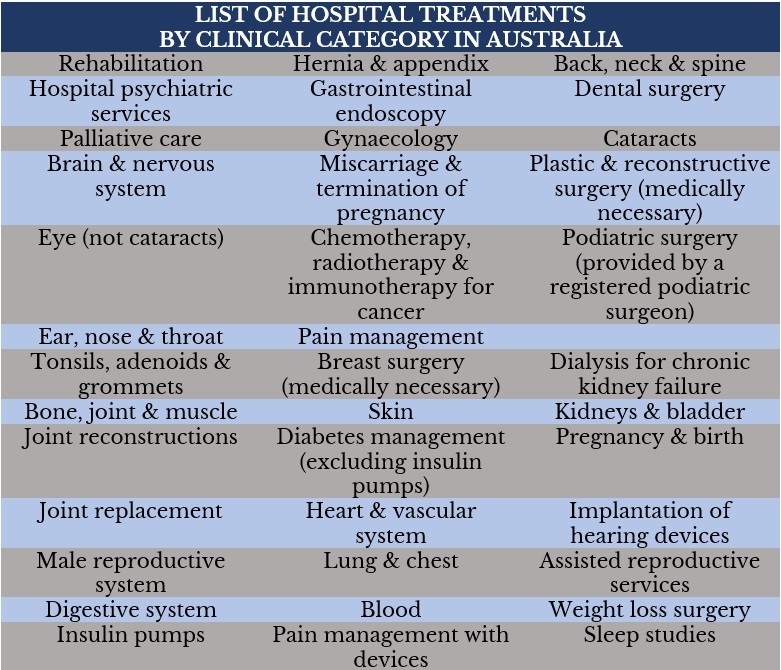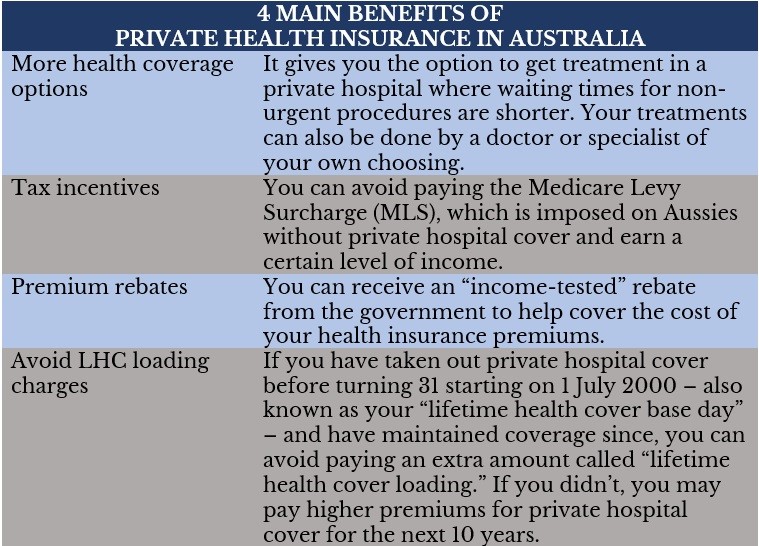

Australia’s healthcare system is regarded as among the world’s most extensive, providing citizens and permanent residents with a full range of services, spanning from general and preventative care to complex medical treatments. Getting access to some of these benefits, however, is not always straightforward, leaving many of us wondering what treatments and services are really covered and which ones we need to pay for.
Insurance Business answers these questions and more in this comprehensive guide to health insurance in Australia. Here, we will discuss how the two main parts of the country’s healthcare system – public and private – work, what each system covers, and the benefits each brings.
If you’re in search for coverage that matches your healthcare needs, this article can help you make an informed decision. Insurance professionals, meanwhile, can share this piece with their clients to assist them in finding the best coverage. Read on as we explain to you the nitty-gritty details of health insurance in Australia.
Australia runs a public health system that is one of the best globally, offering free or affordable healthcare for almost everyone living in Australia. This universal health insurance system, called Medicare, is jointly operated by the federal, state or territory, and local governments.
Despite this, Australians may still need to endure long waiting times, especially for non-life-threatening medical procedures. There are also certain services that Medicare does not cover that you may need to pay for, including:
Because of this, the government is encouraging citizens and permanent residents to take out private health insurance through premium rebates and tax incentives.
We will discuss in detail how both private health insurance and universal health insurance in Australia work in the succeeding sections.
To be able to enrol in Medicare, you must be resident in Australia and fall under any of these categories:
Citizens and permanent residents of the following Australian territories are also qualified for Medicare:
You can view the complete requirements, as well as download the Medicare enrolment form via Services Australia’s website.
In addition, Australia has reciprocal healthcare agreements with 11 nations. Visitors from these countries can also enrol for a Medicare card. You can check out the full requirements for each country in the table below.
|
AUSTRALIA’s RECIPROCAL HEALTHCARE AGREEMENTS |
|||
|---|---|---|---|
Medicare gives most Australian residents access to safe and quality healthcare for free or at a reduced rate. The system is funded by the government. Here’s what it covers.
Under Medicare, you will be able to access treatment as a public patient in a hospital at no charge. But this also means that you cannot choose your own doctor or specialist as they will already be appointed by the hospital. Likewise, you may not have a say on when you will be admitted, especially when you may have to be placed on a waiting list.
For doctor visits outside the hospital, Medicare reimburses the full cost of the Medicare Benefits Schedule (MBS) fee if you consulted a general practitioner and 85% if you used the services of a specialist, according to PrivateHealth.gov.au. If the doctor bills Medicare directly, also referred to as bulk billing, the entire cost is also covered.

You can visit the website of the Department of Health and Aged Care’s Medical Services Advisory Committee (MSAC) for more information about the MBS.
Among the medical services that Medicare covers are:
The Pharmaceutical Benefits Scheme (PBS) provides partial coverage to the cost of prescription medicines bought from pharmacies. The amount you will pay varies, depending on the type of medication. To obtain this benefit, you must present your Medicare card. Australians with government-issued concession cards are also eligible for lower maximum payment.
Not everything is covered by universal health insurance in Australia. The following are excluded from Medicare coverage but may be covered by private health insurance.
Medical examinations for life insurance are also not covered under Medicare but may be covered or even waived in some policies. If you want to know what the top life insurance companies in Australia cover, you can check out our latest rankings.
Private health insurance pays out for healthcare and medical expenses that are not covered under Medicare. Such policies can also cover the cost of treatment in a private hospital or if you prefer to be treated as a private patient in a public hospital.
There are two major types of private health insurance policies that you can choose from. These are:
As mentioned earlier, residents in most states and territories can also secure ambulance cover, which includes emergency transport and medical care. Queensland and Tasmania are the only exceptions as their state governments already provide automatic coverage.
One important thing for you to remember is that you can only purchase private health insurance from registered insurers. You can find the complete list of registered health insurance companies on the Australian Prudential Regulation Authority’s (APRA) website.
In addition, the Private Health Insurance Ombudsman (PHIO) releases a State of the Health Funds annual report to provide both insurance professionals and those searching for coverage with comparative information on the performance and service delivery of all health insurers in the country. The report also ranks the nation’s top private health insurance providers based on a set of metrics.
Hospital cover comes in four different tiers, with each covering a mandated list of treatments.
These are:
Because Gold policies cover all 38 types of treatments outlined by the government, they also have the highest premiums at about $160 a month based on recent research that Insurance Business conducted. Basic, Silver, and Bronze policies cost around $75, $80, and $115 monthly, respectively. To come up with these estimates, we checked out the websites of the top private health insurance companies in Australia and several price comparison websites.
The table below lists all 38 types of treatments by clinical category that private health insurance in Australia may cover.

Private health insurance premiums are influenced by several factors, including:
Premiums work differently depending on the type of policy. If you understand how this insurance component works, you can check out our comprehensive guide to insurance premiums.
By taking out private health insurance, you can access the following benefits that you typically cannot under the universal healthcare system.
The Department of Health also listed four main benefits of purchasing health insurance in Australia. These are:


You can check out the Australian Taxation Office’s (ATO) website for more information about the MLS.
The way health insurance in Australia works varies than those of other countries. If you want to compare how health insurance and our healthcare system fares with those of other nations, our global health insurance primer can serve as a useful reference.
What are your thoughts about health insurance in Australia? Do you think it is among the best in the world? Feel free to share your comments below.
